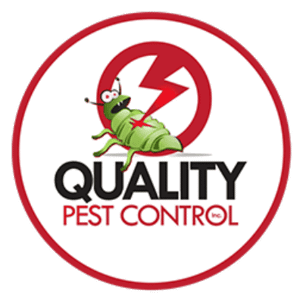Welcome to Quality Pest Control, your trusted partner in winning the battle against ants in Omaha. Ant infestations can be a nuisance, and, in many cases, they pose significant health concerns and property damage risks. We're here to provide expert advice on effective ant control.
In this guide, we'll dive right into the world of ants, helping you understand the common ant species you might encounter, the health concerns and property damage they can cause, practical prevention tips to keep ants out of your home, and how professional pest control from Quality Pest Control is the best solution for ant control. With this knowledge, you'll be well-equipped to tackle any ant-related challenges in your home or business.
So, let's get started on our journey to becoming ant control experts, and remember, for the best ant control in Omaha, look no further than our team at Quality Pest Control for the solution you can count on.
Knowing as much about ants as possible is essential to combat ant infestations properly. This section will provide a detailed exploration of the common ant species you might encounter in Omaha. By understanding their characteristics, habits, and habitats, you'll be better able to develop precise strategies for ant control. Let's dive into the diverse world of these tiny yet resilient pests.
Some of the most common types of ants in Omaha include:
- Carpenter Ants: Carpenter ants are among the largest ant species. They are notorious for burrowing into wood and damaging homes and other wooden structures. These ants can be black, red, or a combination of both. Carpenter ants prefer moist wood, making them a significant concern in water-damaged areas.
- Odorous House Ants: These ants are known for the foul odor they emit when crushed, often described as a "rotten coconut" smell. They are tiny, dark brown to black ants, and you'll typically find them foraging for sweets in kitchens and other food sources.
- Argentine Ants: Argentine ants are small, light to dark brown ants. They are a highly invasive species that can form extensive colonies. They are attracted to sugary foods, and are common in kitchens. They can be particularly challenging to control due to their large numbers and ability to establish multiple nests.
- Pavement Ants: These small, dark brown to black ants are common on sidewalks and driveways. They often nest beneath pavement cracks and are attracted to various foods. Controlling them may involve locating and treating their nests under pavement.
- Pharaoh Ants: Pharaoh ants are tiny, pale-yellow ants. They are known for being extremely difficult to control due to their complex colony structure. They can quickly infest areas where food is present, including homes, hospitals, and restaurants.
- Red Imported Fire Ants: While not as common in Omaha, these aggressive ants are known for their painful stings. They create large, distinctive mounds in open areas. Their stings can be a significant health concern, especially for those with allergies: Thief ants are extremely small, pale yellow to light brown. They got their name because they often nest close to other ant species' colonies and steal food. They can be challenging to notice but can be a nuisance.
- Black Garden: These are medium-sized black ants commonly found in gardens and lawns. They are known for tending aphids, protecting them in exchange for their honeydew secretion. Controlling black garden ants may involve addressing the aphid problem.
- Acrobat Ants: Acrobat ants are small, usually brown or black. They have a distinctive heart-shaped abdomen, which they can lift above their head, hence their name. They often nest in decaying wood or under stones.
Understanding the behavior, preferences, and habitats of these common ant species is necessary for effective ant control. Identifying the species you're dealing with will help you choose the most appropriate methods for eradication or prevention.
In the subsequent sections of this guide, we will explore the health concerns and property damage associated with these ants and provide valuable ant prevention tips to keep ants away.
Ants may be small, but they can bring about significant issues beyond mere annoyance. This section will explore the potential health concerns and property damage ants can cause. Join us as we explore the far-reaching impact of these pests.
Health Concerns: Unraveling the Risks
Ants, though unassuming in appearance, can pose substantial health risks to you, your family, and your pets.
- Allergic Reactions: Ant bites or stings can trigger severe allergic reactions in some individuals. These reactions may include swelling, redness, itching, and, in rare cases, anaphylaxis, a life-threatening condition. It's essential to recognize the symptoms of an allergic reaction and seek medical attention promptly if they occur.
- Disease Transmission: While not as common as other pests like mosquitoes or ticks, ants can transmit diseases. They can carry pathogens on their bodies and contaminate food sources, which can lead to foodborne illnesses, especially when ants forage for human or pet food.
- Contaminated Food: Ants love sugary or protein-rich foods. When they infiltrate your kitchen or pantry, they can contaminate your food, rendering it unsafe for consumption. This contamination not only results in wasted groceries but can also expose you to potential health risks.
- Indoor Air Quality: In the quest for food, ants may crawl across various surfaces, including kitchen counters and utensils. Their presence can compromise the cleanliness of your living spaces and negatively impact indoor air quality, especially if you're dealing with a significant infestation.
These health risks should help you appreciate the importance of ant control and safeguarding your well-being.
Property Damage: Protecting Your Investments
Beyond health concerns, ants can also inflict damage on your property, from structural issues to more localized problems:
- Wood Damage: Carpenter ants are notorious for burrowing into wood, often causing structural damage. Their presence can weaken the integrity of wooden structures in and around your home, potentially leading to costly repairs.
- Electrical Damage: Some ant species, like red imported fire ants, are known for nesting around electrical systems; this can pose a fire hazard and lead to costly electrical repairs.
- Garden and Lawn Damage: In outdoor spaces, ants can disrupt the health of your garden or lawn by tending to aphids, which they protect from natural predators, leading to plant damage and an imbalanced ecosystem in your yard.
- Property Aesthetics: Ant mounds and foraging trails in your yard or driveway can be unsightly, affecting the overall appearance of your property, which is particularly concerning for homeowners who take pride in the aesthetics of their outdoor spaces.
Understanding these problems is crucial to appreciating the importance of ant control and safeguarding your well-being.
Preventing ant infestations is often more manageable and cost-effective than dealing with them after they take root in your home. These strategies will help you maintain a home environment that doesn't include pesky ants and minimize the risks associated with ant infestations. These measures can safeguard your home, protect your family's health, and preserve your property. Let's explore practical steps to keep ants at bay.
Preventing ant infestations requires a multifaceted approach. Start by sealing any potential entry points, such as cracks and gaps around windows and doors, using caulk or weatherstripping. Additionally, maintain a consistently clean environment, particularly in the kitchen and dining areas, where food residues can attract ants.
Beyond this, eliminate standing water sources in and around your home, as many ant species look for moisture and secure outdoor food sources by cleaning up after meals and storing trash bins away from your home.
You will also want to trim back trees and vegetation that could serve as ant pathways to your house, a key factor in outdoor ant control. Lastly, establish a routine examination schedule to catch and address issues in their early stages, preventing full-blown infestations. These proactive steps will help you get rid of ants and maintain a clean, safe living environment for you and your family.
Need ant removal but don't know where to start? Professional pest control is the smartest choice when it comes to keeping pests out of your environment, and Quality Pest Control is your reliable partner in this endeavor. Our unwavering commitment to excellence and unmatched expertise make us the go-to solution for effective ant control in Omaha. We do not just get the job done; we excel at it.
Our dedication to professionalism and proven track record of successful ant control sets us apart from the rest. We take the time to thoroughly assess the specific needs of your property and design a tailored plan to address your unique ant infestation challenges. Our experienced service professionals are equipped with the latest tools and techniques, ensuring that no ant nest remains undiscovered and no ant colony goes undefeated. With Quality Pest Control, you can trust in our ability to meet and exceed your expectations, providing you with peace of mind and an environment void of pests.
Contact us for more information today!
Call Today!
(402) 534-1364
Quality Pest Control


